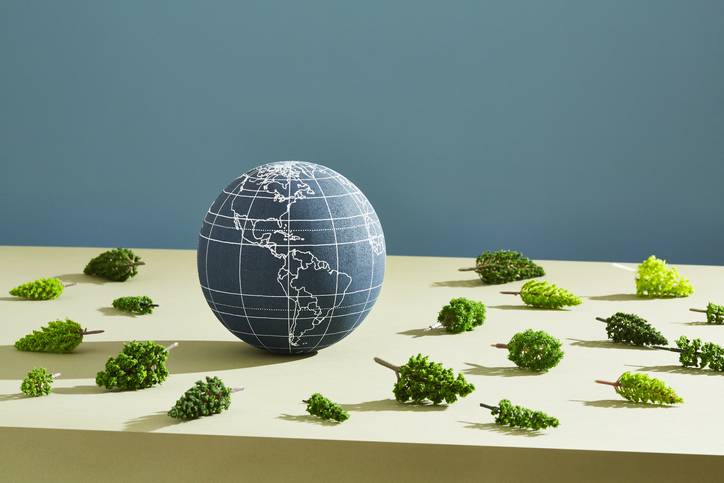Discover Cargill’s groundbreaking pledge to eliminate deforestation from its supply chains for key commodities by 2025, focusing on Brazil, Argentina, and Uruguay. This article delves into the details of this significant environmental commitment, its implications for global trade, and the collaborative efforts involved. Learn how Cargill’s initiative aligns with their climate action plan and the positive impacts anticipated for ecosystems, climate, and sustainable agriculture.
Cargill Commits to Eliminate Deforestation in Key Supply Chains by 2025
Cargill, a leading global agribusiness, has taken a significant step towards environmental conservation by pledging to remove deforestation from its direct and indirect supply chains. This initiative, focusing on commodities such as soy, corn, wheat, and cotton, is set to impact Brazil, Argentina, and Uruguay, and aims for completion by 2025. This ambitious plan is an extension of Cargill’s previous commitment to achieve deforestation-free commodities in South America by 2030.
Mighty Earth Campaign Group
Mighty Earth, a prominent campaign group and a critical voice against Cargill, has acknowledged this move as a substantial progress. According to Glenn Hurowitz, CEO of Mighty Earth, Cargill’s new commitment is a major step forward in environmental conservation, potentially saving vast land areas and significantly reducing carbon emissions.
Pilar Cruz, Cargill’s Chief Sustainability Officer, stated that this accelerated commitment is a testament to Cargill’s dedication to making real progress in combating deforestation and land conversion, aligning with their broader climate action plan. The initiative is expected to benefit native vegetation and support sustainable agriculture practices in these countries, which together contribute significantly to the world’s trade flows and crop production.
Company News: Cargill & Koch secure US largest private companies
Cargill emphasizes the importance of collaborative action in this endeavor, seeking partnerships with farmers, governments, NGOs, and other stakeholders to find solutions that balance economic development with environmental conservation. Additionally, the company plans to leverage advanced geospatial technology from the World Resources Institute (WRI) to enhance its monitoring and verification processes for natural ecosystems and agricultural lands.
Craig Hanson, Managing Director of Programs at WRI, commended Cargill’s new commitment, highlighting its potential positive impact on people, nature, and the climate. However, there are calls for Cargill to expand its environmental commitment beyond the three countries currently included in the plan, indicating a growing expectation for comprehensive global environmental responsibility.
Related: Cargill’s Corporate Responsibility: Sustainability, Food, Health, Inclusion



